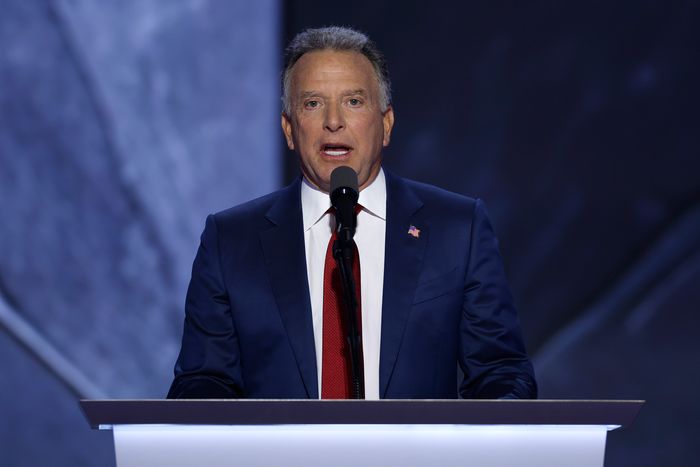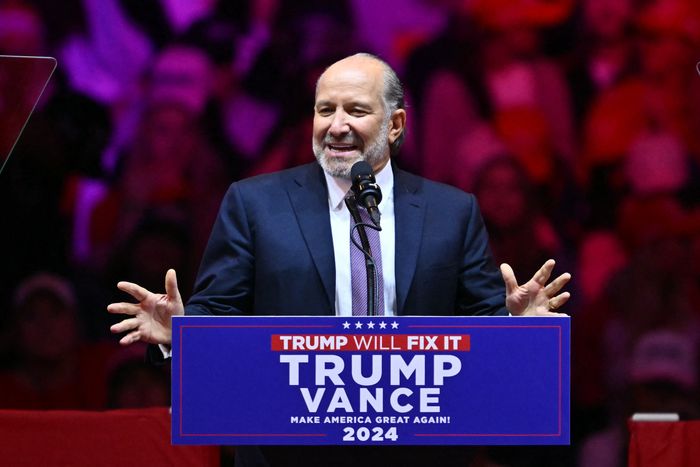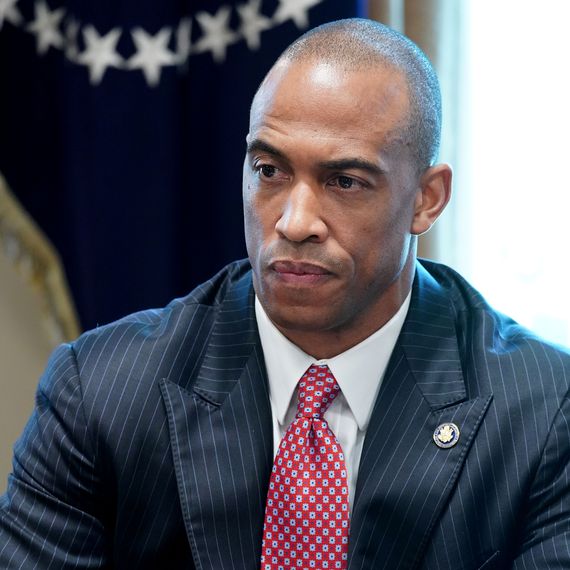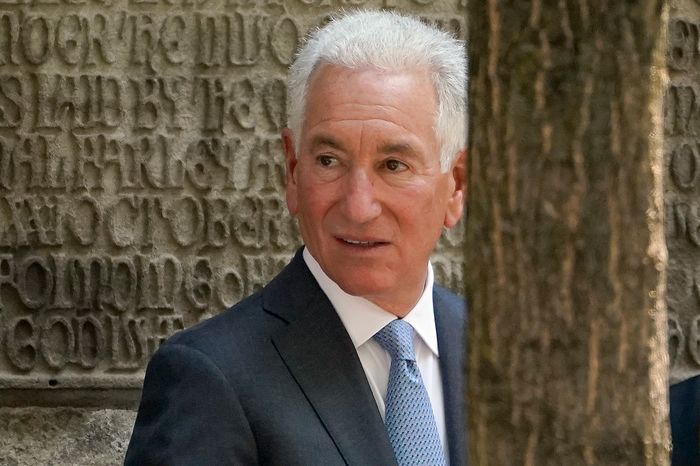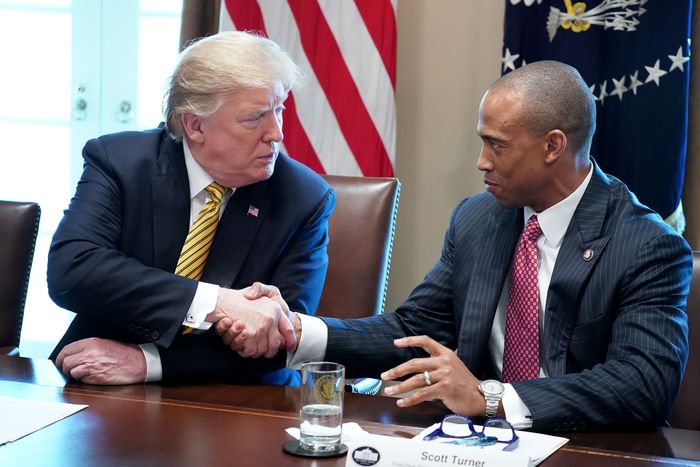
The day after Donald Trump won office, the mood at a Miami real-estate conference was celebratory, according to The Real Deal. It wasn’t because the president-elect had campaigned on any policies that would boost the industry. If anything, his threat to raise tariffs with China and to deport migrants by the thousands would raise construction costs, even if as-yet-unknown tax breaks might help developers.
Instead, the crowd seemed hopeful because of who Trump is: a real-estate guy who sees the world like they do. And someone who might fill his administration with other real-estate guys. Not just members of his extended clan — the Kushners, the Trumps — but others whom he’s known for decades, including a commercial real-estate exec who met him on the charity circuit and a former real-estate attorney who testified on his behalf during his hush-money trial. This list will be updated.
Steve Witkoff
New title: Special envoy to the Middle East
Known for: Leading the Witkoff Group, a development company with a stake in 70 projects, including the Woolworth Building and One High Line, the pair of towers designed by Bjarke Ingels
Government experience: Advised Trump on tax cuts during the last administration
Potential conflicts of interest: He’ll be negotiating with some of the same countries that invest in his buildings
His backstory: A ham-and-Swiss sandwich from a New York deli may determine the fate of the Middle East, at least for the next four years. It was paid for by Steve Witkoff, then a real-estate attorney whose client didn’t have any cash. The future president never forgot the favor, and “the sandwich incident,” as Witkoff described it, started a decades-long friendship and maybe a new career; Trump claims that Witkoff followed him into development, reasoning, “If Trump can do it, I guess I can do it, right?”
Raised in the Bronx by a family that worked in manufacturing, Witkoff started buying up distressed buildings uptown and carrying a gun to collect rent, according to the New York Observer, which reported his taste for late-night deals at Rao’s surrounded by a “rat pack of self-proclaimed tough guys.” As a recession in 1990 and 1991 convinced investors to sell, Witkoff bought up offices downtown and rode the boom years of the 1990s into wealth. His company is mainly known for its luxury residential and hospitality portfolio, including the Bjarke Ingels–designed One High Line, the Public Hotel, and the Times Square Edition hotel.
Witkoff has donated almost $2 million to Trump’s campaigns and various funds, advised him on tax cuts, and done a lot of golfing with him (including during an assassination attempt in Florida). He appeared as an expert witness during Trump’s civil fraud trial. He has little government experience but has dined with heads of state; Trump invited him to dinner with Israeli prime minister Benjamin Netanyahu — whom Witkoff openly supports, helping Trump fundraise after October 7 by criticizing the Biden administration’s response. But the real-estate investor may also be financially motivated. The Kushners got Saudi investment after Jared Kushner held this role through the last administration, and Witkoff has already leaned on money flowing from the Middle East to prop up his portfolio, convincing Abu Dhabi’s sovereign wealth fund to pay $275 million to save a revamp of the Park Lane Hotel, which the partners sold last year to Qatar’s Investment Authority for $622 million. He may also have to thank Trump for that deal. Mother Jones wrote that lobbyists hired by Qatar to win influence over the president in 2017 reported meetings with 15 execs, including Witkoff.
Howard Lutnick
New title: Secretary of Commerce, if confirmed
Known for: Rebuilding and expanding Cantor Fitzgerald after 9/11
Government experience: Advising Trump in the current transition
Potential conflicts of interest: Almost any decision that Lutnick makes will affect the earnings of Cantor Fitzgerald, an investment bank with $3.5 billion in the market, major stakes in crypto, and a commercial real-estate arm
His backstory and history with Trump: Howard Lutnick was an orphan who became a bond trader and spent his career building up the company that hired him straight out of college. Cantor Fitzgerald specializes in trading government bonds, the shares that support public spending projects, and he was only 29 when he got the top job there thanks to a hustle that was so “widely disliked in the industry” that it made it into the New York Times. Cantor lost three of its four U.S. workers on 9/11, including Lutnick’s brother. He survived (thanks to being at kindergarten drop-off) and pivoted to rebuild and expand the company, eventually getting into commercial real estate. In 2011, Cantor bought Newmark, a global brokerage that operates in the U.S., Latin America, Europe, and Asia.
Lutnick says he met Trump on the charity circuit, and they’re close enough that he has a nickname for him (DJT). They both agree on imposing tariffs and letting crypto go unregulated — and in his new role, he will have control over that. The friendship seems to have won Newmark the job to sell Trump’s hotel in D.C. (after another broker pulled out after the insurrection). And this fall, Trump tapped Lutnick to co-chair his transition with a focus on hiring. Sources told Politico that Lutnick is icing out appointees who would not be “personally beneficial to him” and taking meetings in D.C. that steer the conversation to “matters impacting his investment firm” Cantor Fitzgerald, like deregulating crypto. That could be a view into how Lutnick will act as Commerce secretary, a role that will have him negotiating trade deals with countries where Newmark operates or where new tariffs could hurt Cantor investments.
Scott Turner
New title: Secretary of Housing and Urban Development, if confirmed
Known for: His NFL career
Government experience: Elected to the State House in Texas from 2013–17, led a council under Ben Carson at HUD to promote Opportunity Zones
Potential conflicts of interest: Steering federal dollars to a personal network of developers and politicians
His backstory and history with Trump: Scott Turner is the kind of photogenic, charismatic showman who gets handed microphones and jobs in public speaking — a natural segue from a career as a professional athlete. Between seasons playing for the NFL, Turner interned for California representative Duncan Hunter, and in 2013, he won a seat in the Texas State House. In 2019, the first Trump administration made him the face of its Opportunity Zones program, which offered tax breaks for developers who built in areas that were deemed distressed (officially, his title was executive director of the White House Opportunity and Revitalization Council). When Trump lost in 2020, Turner floated through a series of other front-man roles: assistant pastor in a Dallas megachurch, “chief inspiration officer” for a software company, and “chief visionary officer” for the multifamily developer JPI. Turner told the Dallas Business Journal that his focus at JPI was on affordable-housing projects that could win tax breaks if local governments were onboard and that his background meant he had “great relationships” with those local politicians.
When the president-elect announced Turner’s appointment, he cited his record getting “over $50 Billion Dollars in Private Investment!” for Opportunity Zones. But researchers found that the incentives rarely got to the small businesses the program was intended to help, and journalists found developers were getting the breaks to build in areas that weren’t exactly distressed, including a slice of Fifth Avenue. Politico reports that Turner is expected to carry out the administration’s plans to slash the HUD budget, cut fair-housing rules, and gut affordable-housing programs. Ben Carson wanted to achieve some of that at HUD during the last Trump administration, but he was stymied by Congress. This administration has both House and Senate on its side and may have an easier time getting their approval.
Charles Kushner
New title: U.S. ambassador to France, if confirmed
Known for: Founding one of the city’s big development companies, getting prison time for extorting his sister, fathering Jared
Government experience: None
Potential conflicts of interest: The value of Kushner Companies nearly tripled in value since Trump won office, and an ambassador role could bring more investment from sovereign wealth funds
His backstory and history with Trump: Like Trump, Charles Kushner was born into a real-estate family helmed by a self-made man. His father, Joseph, survived the Holocaust and turned a job as a carpenter into a development company that built up the postwar suburbs of New Jersey, an empire that he handed to his son. Charles saw himself as a kingmaker, and a family friend described his ambition to become “the Jewish Kennedy.” He traded some of his father’s suburban housing for jazzier buildings — like the Puck in Soho, which he helped buy in 1990, and the 41-story office tower at 666 Fifth Avenue, a $1.8 billion purchase that he funded by selling off 17,500 New Jersey apartment units.
But in 2005, Kushner was convicted of filing fraudulent tax returns, lying to the Federal Election Commission, and tampering with a witness. (The noirish plot had Kushner paying a private investigator to get a prostitute to seduce his sister’s husband and sending her a videotape of the act in exchange for her silence.) Chris Christie called it “one of the most loathsome, disgusting crimes” that he had prosecuted. Meanwhile, the timing of the family’s purchase of 666 Fifth Avenue, on the eve of the 2008 recession, forced them to look for cash, and they courted Qatar, China, and the UAE — entangling with the same governments that Jared Kushner was supposedly negotiating with in a new White House role.
Meanwhile, lawsuits filed by people living in Kushner buildings have exposed how the company operated, often by shirking on maintenance in order to force out tenants. In Williamsburg, 245 rent-regulated tenants fled a waterfront building, and 20 of them sued, alleging that the constant sound of drilling and endlessly falling construction dust had made the place unlivable. In Maryland, ProPublica found a complex where the Kushners’ management company failed to make even basic repairs, and many who tried to move out faced fees and even lawsuits.
Jared Kushner isn’t taking a formal role in this upcoming administration, but his track record in the last one shows that it may be a lot simpler to squeeze money out of powerful connections. He now helms a private-equity fund that raised $3 billion “mostly from the sovereign wealth funds of Saudi Arabia, Qatar and the United Arab Emirates,” the Times reported. Since 2016, the company’s value almost tripled from $1 billion to $2.9 billion. Ambassadorships are often awarded to loyalists and supporters, but this appointment looks particularly clannish. It may also bring more investors who won’t have an easy time turning down a dinner in the ambassador’s official residence — a grand, stony 1842 Paris mansion that the Nazis turned into an officers club. In any case, the role is certainly the fulfillment of the maxim that Charles’s carpenter father liked to tell his sons: “You cater to the masses, and you’ll eat with the classes.”
Check back for updates as the transition announces more hires.


